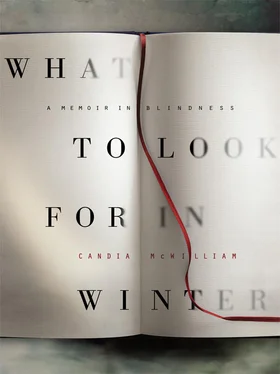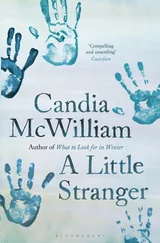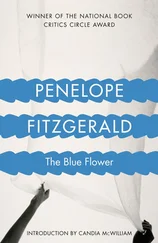About the time of Katie’s first wedding I made a friend who is everything I am not. I met her through my Czech friend Cyril Kinsky. He has twenty-six Christian names, wanted to be a theatre director, and was for many years. Then he fell in love, started a family, and trained for the bar. He is a QC and a virtuoso of marquetry, indeed all forms of DIY. He is also cool, unusual in a DIY-er. Kafka lived to the side of his family’s palace in Prague. His father Alphy smoked more eloquently than any man I’ve seen in my life.
Cyril brought to Cambridge his cousin, Sophie-Caroline Tarnowska. We’ve got an elective affinity. She knows what I think. Her husband Gilles is my son Minoo’s elective affinity. He is a red-headed Protestant left-wing banker of vertiginous musicality. He is so nice you want to take him home. I have loved Sophie-Caroline over thirty years. Recently they took a second honeymoon in Scotland. Gilles reported that the rain was ‘so delicious, so varied, so interesting’.
When Minoo went on his French exchange to the Paris home of this family (all of whom speak better English than I do, so it was pretty silly), he telephoned to say that everything was perfectly all right, actually very homely, for example there was a red-headed grand-mère who lived upstairs with her dog Gavotte and who wore jeans and the oven had fallen out of the wall, ‘just like at home’.
Twice in my life Sophie-Caroline has given me the courage to act as I could not have without her. She has never had to be explicit because she reads my mind.
When I went blind she rang me and I was transfused with a reason to go on. I know that she is devout and she gave me some of it, like a lozenge, or a bit of mint cake on a steep climb, a viaticum, without actually mentioning the name of the Manufacturer, the Almighty, but she was too clever and too kind to be so coarse as to say outright, ‘Do not harm yourself.’
For some of the time, they live in the Gers, in a sublime semi-ruin called Mazères, the ancient archiepiscopal palace of the archbishops of Auch. This house is the great romance of Gilles’s parents, their last shared project, all still very much in the doing. The Angelus tolls daily in the tower. The fields around and the earth and the cows and the farm dogs are the colour of pale bread. In the roof of the palace is a library as long as a church. Minoo lives in this room when he visits. Next to it through a glazed rose window is the music room. It is quite possible to go from the music room into the library and miss Minoo, for all that he is tall, petrified with deep contentment into the room. Down four flights of stone stairs red griffins, faded after centuries, are stencilled in rhythm on the pale curve of the chalky walls. The history of the Cathars and of the Albigensians is legible in one layer after another in this fortress. A corner of a fallen room is blocked up with stone of another shade, from a time long before the already far time that seems to be the closest, yet is already centuries away.
There is an enfilade, falling, snowing, with whitewash, of mirrors laughing thinly into one another, the panelling tactfully bracketing itself around each tall looking-glass. The ceiling asks for chan deliers but incompletion is the keynote. How to describe it? Perhaps if Ely Cathedral grew like an opening stone rose and softly half fell down…?
In this house, at the age of fifty, one night in 2005 I listened out for hornets in my bedroom. I knew I had to change my life before I lost it. A wasp will kill me, but hornets carry more poison, so I’d die sooner. I know, because I was stung by an orange hornet the size of a conker at sea just off Tahiti and that was nearly it for me, before even marrying for the first time. My then fiancé whizzed me by rubber boat into hospital and by the time we arrived my arm was a washing-up glove full of jelly.
Decades on, I waited for hornets, standing with a shoe in my right hand in the hortensia-wallpapered room in the hot Gascon night. The small double bed was occupied by the semicircular body of my then companion. Marcel contemplates the sleeping body of Albertine in like pose, reflecting on the infinitude of traits one human soul may possess.
Such was nowhere near my reflection that night. I knew that to be anything like truthful or kind, I had to get away while there was still time for him to locate another comforter, before I turned on him for nothing worse than his own fulsome nature.
It was nothing anybody said save he himself. It would take Proust’s cumulative genius to show how, feeling himself closest to truth, he most lied. To be with him through time was to see through him like a hoop. So, a profession can take the soul. It was politics that he professed.
In fewer than three months’ time, I shall leave this flat for, as its delicate state attests, it is in need of structural and architectural attention. Its ceilings sag a bit, its draughts are tempestuous, and aspects of its layout, although I have come to love them, are certainly dated. Liv and I get our fizzy drinks from a suavely concealed mirrored wall that you press and it magically opens to reveal a cocktail niche. There is a flip-over serving counter for when the studio was in use for private views in the seventies. There is a door into the studio that obviates the necessity of entering the artist’s private apartment, a system put in place for Sargent. The colours, that will of necessity have to go, are kind to pictures, ranging from every kind of dove grey through to lichenous greens and, in my bedroom, a colour that combines pink, blue, brown, grey, white and black and yet is very light; the colour of the gill of the smallest, freshest, field mushroom. The sitting room, that we call Henry James, might be any colour. It is the colour of memory, a tactful background, a recessive, becoming, dark but festive, shade, making everything hung upon it look better.
Five or so years before his death, the owner of this flat sustained a stroke that made movement difficult, although it did not stop him painting. In order to help him remain independent, banisters and grabs were installed exactly as though it had been a ship. They save me from sinking.
I could have done with more of those grabs, on a metaphysical level, when I was at Cambridge. I did not know that there lay within me a thirst nothing could quench that would nearly kill me. There were signs, but they were illegible to me and my friends at the time.
My room at Girton was called F6; it took some ascending to. I was next to a popular girl whose parents visited most weekends bringing lox and bagels. I was very grateful one Sunday when the mother of this family gave me a bagel, stuffed full. Some kind of fear set in. I did not understand how to get out of one’s room except to go to the college library or for meals in hall. I knew that when women were first up at university they joined one another for intense conversation over mugs of hot chocolate. I had two mugs, so that was a start. Further research revealed a row of three baths, each in its cubicle and each the size of a lifeboat, so I spent a good deal of my first year at Girton just sitting in the bath reading and getting wrinkly. I was an unreliable and irresponsible student, having come straight from school where, during the last term that Katie and Rosa were there, I had worked as a housemaid and kitchen maid, because I had got into Cambridge before my A levels, didn’t want to be separated from them and needed to earn money. It was interesting to see the modification of girls’ behaviour towards me as I changed from senior to skivvy. Mrs Rock, the house cook, was kind to this unhelpful pair of hands and gave me jobs she knew I could do like emptying the commercial dishwasher, grating fifteen pounds of cheese, or slicing ox liver and onions for fifty-six people with a knife whose steel was whippy, sharp and thin as a line.
Читать дальше











